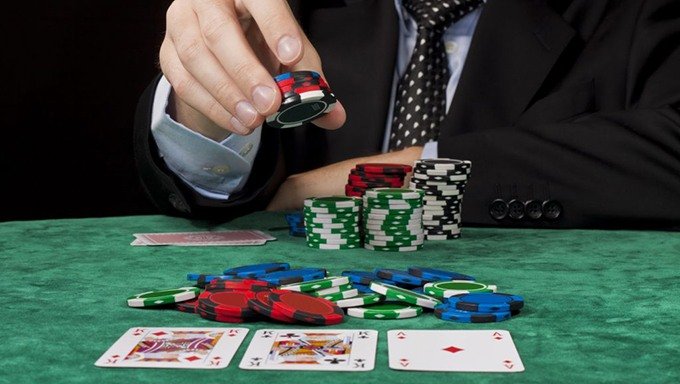Casinos have long been a symbol of excitement, luxury, and risk. From the grandiose palaces of Las Vegas to the glamorous establishments in Monte Carlo, m88 bonuses have attracted millions of visitors seeking a mix of entertainment, social interaction, and the chance to win big. But beneath the dazzling lights and the allure of fortune lies a complex world of psychology, strategy, and business. In this article, we will explore the evolution of casinos, the variety of games they offer, the science behind the house edge, and the role they play in modern culture.
The Evolution of Casinos
The roots of modern casinos stretch back to ancient times. While gambling in some form has been practiced since the beginning of recorded history, the first “casino” as we know it today began taking shape in 17th-century Italy. The word casino originally referred to a small country villa or social club, but by the late 1600s, these venues began hosting gambling games. The first official casino, the Casino di Venezia, was established in Venice in 1638, and it remains in operation today, a testament to the enduring appeal of casino entertainment.
The modern casino industry truly exploded in the early 20th century, with Las Vegas becoming the epicenter of casino culture. In the 1940s, the establishment of the first legal casinos in Nevada transformed the city into a global gambling hub. Over time, other cities around the world, such as Monaco, Macau, and Atlantic City, followed suit, each adding its unique flavor to the casino experience. Today, casinos not only offer traditional table games but also host state-of-the-art slot machines, poker tournaments, and high-stakes private rooms for the elite.
The Games of Chance and Skill
One of the primary reasons casinos continue to attract so many visitors is the variety of games they offer. These games can broadly be divided into two categories: games of chance and games of skill.
Games of Chance
Games of chance, such as roulette, craps, and slots, rely entirely on luck. In roulette, players place bets on where a ball will land on a spinning wheel, with numbers and colors determining the outcome. Craps is a dice game where players bet on the outcome of rolls, and slots are the most iconic of all, offering players the chance to win based on spinning reels that produce a combination of symbols.
While these games are easy to learn and often offer the excitement of instant rewards, they are also the ones where the house edge is most prominent. The “house edge” refers to the mathematical advantage that the casino has over the player, ensuring that, in the long run, the casino will always profit from the game.
Games of Skill
Games of skill, on the other hand, require a certain level of expertise and strategy. Blackjack, poker, and baccarat all belong to this category. While these games also have a random element, the player’s decisions can significantly influence the outcome.
- Blackjack, for example, is a game where players attempt to get a hand value of 21 or as close to it as possible without going over. Skilled players often use strategies like card counting to improve their odds.
- Poker involves a deeper level of strategy, as players must read their opponents, manage their bankroll, and decide when to bluff, raise, or fold.
- Baccarat is often associated with high-rollers, and its simplicity belies the deep strategy involved in betting on the player, banker, or tie.
While skill-based games can offer a more involved and competitive experience, they also tend to attract more serious players who are focused on mastering the nuances of the game.
The Science Behind the House Edge
In every game a casino offers, the house edge is a carefully calculated factor that ensures the establishment’s profitability over time. The house edge is the percentage of each bet that the casino expects to keep in the long run. For example, in roulette, the presence of the green zero or double zero gives the casino a built-in advantage over players who bet on black or red. Similarly, the way cards are shuffled and dealt in blackjack ensures that the casino has the statistical upper hand.
Understanding the house edge is essential for anyone hoping to maximize their chances of success at the casino. While no strategy can overcome the house edge in the long term, players can adjust their approach to improve their short-term odds. For example, players can reduce the casino’s edge in blackjack by using optimal strategy or in video poker by choosing machines with a higher payout percentage.
Casinos and Modern Culture
Casinos are more than just places to gamble—they are cultural icons. The bright lights and glitzy designs of casinos have become synonymous with luxury, escapism, and excitement. Casinos have played a significant role in movies, literature, and television, further cementing their place in popular culture.
In film, the casino is often portrayed as a setting for high-stakes drama, with characters wagering everything on the roll of a die or the turn of a card. Movies like Casino Royale, Ocean’s Eleven, and The Hangover have all used casinos as backdrops for thrilling action, comedy, and romance. These portrayals, while fictional, often highlight the allure of casinos as places of both danger and opportunity.
On the other side of the spectrum, casinos also contribute significantly to local economies. In many cities, casinos are major employers, attracting tourists from all over the world. In some cases, they help revitalize struggling areas, offering jobs and tourism dollars in addition to the taxes they generate.
The Rise of Online Casinos
In recent years, the rise of online casinos has transformed the way people experience gambling. Online casinos provide players with the convenience of accessing their favorite games from the comfort of their homes. These platforms offer a wide variety of games, from virtual poker rooms to live dealer experiences, where players can interact with real human dealers via webcam.
Online casinos have opened up new opportunities for gamblers but have also raised concerns about addiction and regulation. With gambling becoming more accessible, it is important for players to gamble responsibly and for regulators to create policies that ensure the safety and fairness of online gaming environments.
Conclusion
Casinos are fascinating places where chance, skill, and strategy converge to create a thrilling experience. From the historical origins of the casino to its role in modern entertainment and culture, they have evolved into multifaceted establishments that attract a diverse crowd. Whether you are a casual player looking for fun or a serious strategist aiming for the big win, the world of casinos offers something for everyone. As long as people enjoy the thrill of chance and the pursuit of fortune, the appeal of casinos will likely remain as strong as ever.


